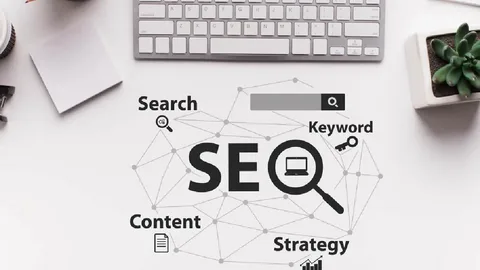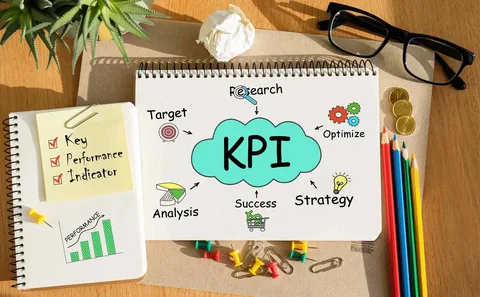SEO for SaaS in the UK Strategies Driving Success in a Competitive Market
The Software as a Service (SaaS) industry is booming in the UK, with businesses seeking innovative ways to stand out in a crowded digital space. Search Engine Optimization (SEO) has emerged as a vital tool for SaaS companies to increase visibility, attract qualified leads, and drive growth. This blog explores actionable strategies tailored for the UK market, emphasizing the importance of partnering with an expert SEO agency for SaaS companies.
Understanding the UK SaaS Market Landscape
The UK’s SaaS market is one of the fastest-growing sectors, driven by the increasing demand for cloud-based solutions. With London as a global tech hub and regional cities like Manchester and Edinburgh emerging as tech clusters, SaaS companies face fierce competition. To succeed, SaaS providers need a strategic approach to SEO that aligns with the unique characteristics of the UK market.

Key Challenges for SaaS Companies in the UK
- Intense Competition: Established players and emerging startups vie for market share.
- Localized Targeting: Reaching diverse audiences across the UK’s regions requires nuanced strategies.
- High Customer Expectations: UK buyers demand personalized, efficient, and value-driven digital experiences.
Why SEO Matters for SaaS Companies
SEO is more than just driving traffic; it’s about attracting the right audience. For SaaS companies, effective SEO means:
- Increased Visibility: Ranking higher on search engines ensures potential customers find your solutions.
- Lead Generation: Targeted strategies attract users actively searching for SaaS solutions.
- Brand Authority: Consistently appearing in search results builds trust and credibility.
Top SEO Strategies for SaaS Companies in the UK
1. Conduct Thorough Keyword Research
Keywords are the foundation of any SEO strategy. For SaaS companies, focus on:
- High-Intent Keywords: Target phrases like “SEO agency for SaaS companies” or “best SaaS tools for SMEs” to attract ready-to-convert users.
- Long-Tail Keywords: Capture niche searches, such as “CRM software for UK startups.”
- Localized Keywords: Incorporate UK-specific terms, such as “cloud solutions in London.”
Start by creating a comprehensive Keywords List (Checklist Point 6) and pulling monthly statistics for the keyword list (Checklist Point 8). Use tools like Google Keyword Planner to identify opportunities and explore question keywords (Checklist Point 7) that align with user queries.
2. Optimize On-Page SEO
On-page optimization ensures your website is search-engine-friendly and user-centric:
- Title Tags and Meta Descriptions: Include focus keywords like “SEO for SaaS Companies” in every page’s metadata.
- Headers (H1, H2, etc.): Structure content with keyword-rich headings (Checklist Point 11).
- Keyword Placement: Ensure the main keyword appears within the first 100 words (Checklist Point 12).
- Anchor Texts: Use descriptive, keyword-rich anchor texts instead of generic terms like “click here” (Checklist Point 13).
- Image Optimization: Use descriptive file names and alt tags incorporating target keywords (Checklist Point 14).
3. Leverage Technical SEO
Technical SEO is crucial for ensuring your site is crawlable and performs well:
- Set Up Google Search Console and Analytics: Monitor site performance and identify issues (Checklist Points 1 and 2).
- Create and Submit a Sitemap: Help search engines index your content (Checklist Points 3 and 4).
- Create a robots.txt File: Direct search engines on which pages to crawl (Checklist Point 5).
- Fix Crawl Errors: Use the URL Inspection Tool to identify and resolve any issues (Checklist Points 17 and 20).
- Eliminate Broken Links and 404 Errors: Ensure all links point to live pages (Checklist Points 18 and 19).
- Site Speed Optimization: Aim for scores above 80 on both desktop and mobile using Google PageSpeed Insights (Checklist Points 22 and 23).
- Install an SSL Certificate and Use HTTPS: Secure your site to build trust and improve rankings (Checklist Points 15 and 16).

4. Build High-Quality Backlinks
Earning backlinks from reputable sources improves your domain authority:
- Guest Blogging: Publish articles on industry-relevant UK websites.
- Competitor Analysis: Steal competitor keywords and backlinks to stay ahead (Checklist Point 9).
- Disavow Toxic Backlinks: Maintain a clean backlink profile (Checklist Point 24).
- Digital PR: Develop newsworthy content to attract links from media outlets.
5. Focus on Local SEO
To dominate the UK market, local SEO is essential:
- Google My Business: Optimize your profile with accurate details and keywords.
- Local Citations: Ensure consistent NAP (Name, Address, Phone) information across directories.
- Short, Descriptive URLs: Target one keyword + location in URLs (Checklist Point 27).
- Catchy Title Tags and Descriptions: Write unique, compelling metadata for every page (Checklist Points 28, 29, 30, 31).
6. Enhance Content Quality
Content is king in SEO. For SaaS companies, focus on:
- Educational Blog Posts: Address pain points and provide solutions your audience is searching for. Update site content every 30 days or sooner (Checklist Point 43).
- Videos and Multimedia: Add videos to increase engagement (Checklist Point 44).
- Organized Content Structure: Use clear headers and spacing for readability (Checklist Point 39).
- Word Count: Ensure pages have at least 1,000+ words of valuable content (Checklist Point 36).
- Call-to-Actions: Include clear CTAs to guide users toward conversions (Checklist Point 38).
- Responsive Images: Compress images and ensure they are no wider than 1920px (Checklist Points 41 and 42).
7. Build Internal and External Links
- Internal Links: Include at least three internal links per page to guide users and distribute link equity (Checklist Point 33).
- External Links: Add two external links per page, ensuring they open in a new window (Checklist Points 34 and 35).

The Role of an SEO Agency for SaaS Companies
Partnering with an experienced SEO agency can accelerate your growth. These agencies bring:
- Expertise in SaaS: Specialized knowledge of the SaaS industry’s unique needs.
- Tailored Strategies: Customized approaches for the UK market.
- Time Efficiency: Allowing you to focus on product development while they handle SEO.
Measuring Success: Key SEO Metrics
Evaluate the effectiveness of your efforts by tracking:
- Organic Traffic: Monitor the volume and quality of visitors from search engines.
- Conversion Rates: Measure how well your site converts visitors into leads or customers.
- Keyword Rankings: Track progress for focus keywords like “SEO for SaaS Companies.”
- Bounce Rate: Ensure users find your content engaging and relevant.
Future Outlook for SaaS SEO in the UK
As the UK SaaS market continues to evolve, SEO will remain a critical driver of growth. Emerging technologies like AI and blockchain are likely to influence search behavior, while regulatory changes may impact digital marketing practices. Staying adaptable and innovative will be key to maintaining a competitive edge.
Conclusion
In the fast-paced UK SaaS market, effective SEO is the cornerstone of success. By implementing strategies that prioritize visibility, user experience, and localized targeting, SaaS companies can thrive in an increasingly competitive environment. Whether you handle SEO in-house or partner with an SEO agency for SaaS companies, the right approach will ensure your business stays ahead in the digital race.




Post Comment